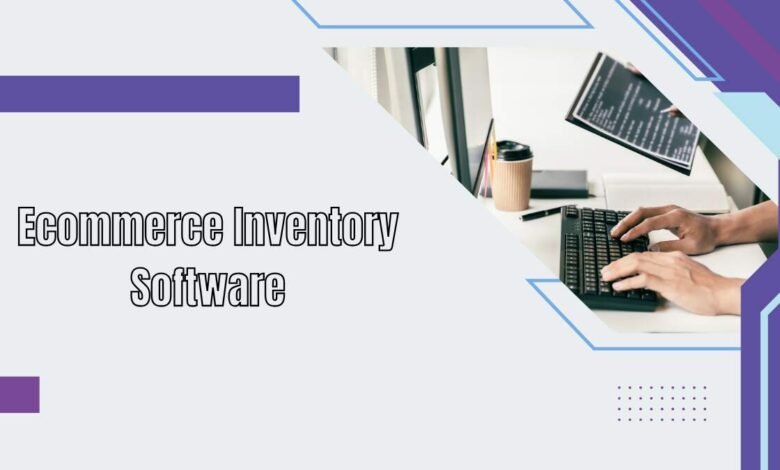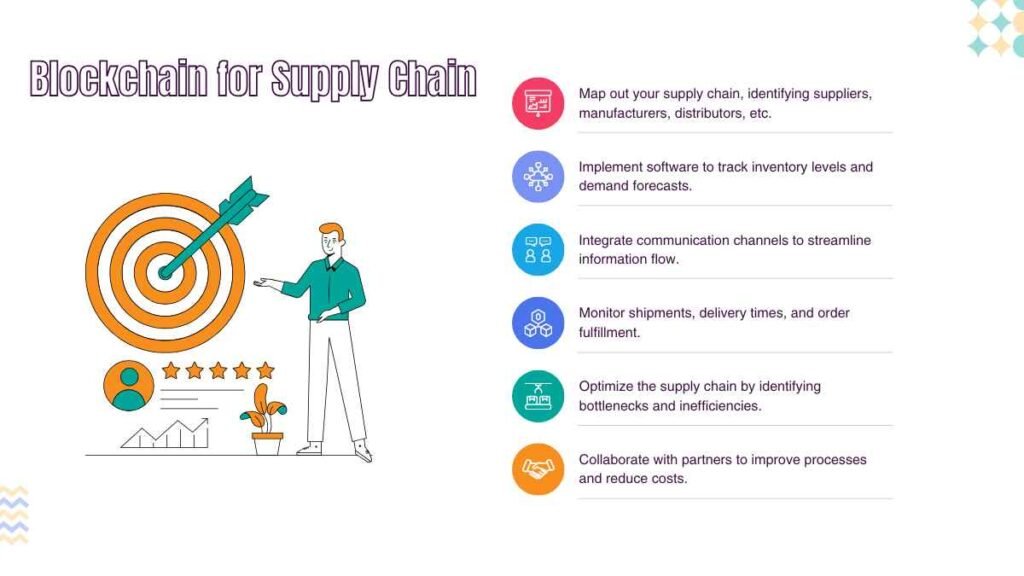Ecommerce Inventory Software: How to Streamline Your Stock

Ecommerce inventory software, businesses require smart solutions to streamline operations. Inventory management is one such critical area where the right software can make or break a company’s success. helps businesses automate tasks, track stock levels, and improve order accuracy—all of which lead to better customer satisfaction and business growth. In this article, we will explore some of the best solutions available, including TradeGecko, NetSuite, Zoho Inventory, QuickBooks Commerce, and Cin7. Whether you’re a small business or an enterprise-level company, understanding these tools can significantly enhance your inventory management strategies.
What is Ecommerce Inventory Software?
It allows users to track products, manage orders, and keep a real-time view of inventory across multiple sales channels, such as online stores, physical locations, and third-party platforms like Amazon or eBay. By automating the inventory process, ecommerce businesses can prevent overstocking, avoid stockouts, and ensure accurate order fulfillment. These software solutions also integrate with other business systems like accounting, CRM, and ERP platforms, further simplifying operations.
Additional Considerations
While we’ve covered the key features and benefits of some of the most popular options, there are a few additional considerations to keep in mind when making your final choice.
Cloud vs. On-Premise Solutions
Most modern solutions are cloud-based, offering the advantage of remote access, automatic updates, and easier scalability. However, some businesses, especially those dealing with sensitive data, may prefer an on-premise solution where they have more control over security and system customization. Cloud-based systems like NetSuite and Cin7 are highly popular due to their flexibility, but it’s important to evaluate your company’s infrastructure before deciding.
Must Visit: Idea Flux
Customer Support
Strong customer support is essential, especially if you’re implementing a new system for the first time. Look for software providers that offer comprehensive onboarding, training, and ongoing support, whether through chat, phone, or email. Zoho Inventory, for example, offers robust customer service and an active community forum where users can find solutions to common challenges.
Mobile Access
In today’s mobile-centric world, having the ability to manage inventory on the go can be a game-changer for busy ecommerce business owners. Whether you need to check stock levels, process orders, or monitor sales performance while away from the office, mobile-friendly platforms like Zoho Inventory and QuickBooks Commerce offer dedicated apps that allow you to stay on top of your business at all times.
Customization and Flexibility

Every business operates differently, so having the ability to customize your inventory management system to suit your workflow is a huge plus. NetSuite is known for its extensive customization options, allowing businesses to tailor reports, dashboards, and workflows to meet their specific needs. Similarly, Cin7 offers customizable workflows, making it ideal for businesses with complex supply chain requirements.
Reporting and Analytics
A good inventory management system should provide detailed insights into your inventory turnover, order trends, and stock levels, helping you make data-driven decisions. NetSuite and Cin7 excel in offering advanced reporting and analytics tools, which can be especially beneficial for larger businesses looking to optimize their supply chains. On the other hand, Zoho Inventory provides more simplified reporting, which is perfect for small to mid-sized businesses seeking straightforward insights without the need for deep analysis.
Why Use TradeGecko/QuickBooks Commerce:
TradeGecko offers a blend of powerful features with a simple, intuitive interface. If you’re already using QuickBooks for accounting, this solution integrates seamlessly, making it a strong choice for streamlining financial and inventory processes.
Integrating with Your Existing Systems
One of the key advantages of modern ecommerce inventory software is its ability to integrate with other systems, such as:
Ecommerce Platforms
Most inventory software integrates with popular ecommerce platforms like Shopify, WooCommerce, and Magento, ensuring real-time inventory updates across all your sales channels. TradeGecko/QuickBooks Commerce and Zoho Inventory are great options for businesses with multichannel sales, offering seamless integrations with these platforms.
Accounting Software
A robust integration between your inventory and accounting systems helps automate financial processes, reducing the need for manual data entry and minimizing errors. QuickBooks Commerce is the go-to solution if you’re already using QuickBooks for accounting, as it provides a unified experience for both inventory management and financial reporting.
CRM Systems
Integrating inventory software with your CRM allows you to provide better customer service by tracking product availability, backorders, and delivery schedules. Zoho Inventory works exceptionally well with Zoho CRM, offering a fully integrated solution for managing both customer relationships and inventory.
Shipping Solutions
Most ecommerce inventory software can also integrate with shipping carriers to streamline order fulfillment. This means you can generate shipping labels, track packages, and manage returns directly from the inventory system. Cin7 and Zoho Inventory offer integrations with popular shipping carriers like FedEx, UPS, and USPS, helping you improve your shipping workflow.
Future Trends in Ecommerce Inventory Management
As technology continues to advance, the future of ecommerce inventory management looks promising, with several trends already making waves in the industry.
AI and Machine Learning
Artificial intelligence (AI) and machine learning are being increasingly integrated into inventory management software to improve demand forecasting and inventory optimization. These technologies analyze historical sales data, market trends, and customer behaviors to predict future demand more accurately. For instance, tools like NetSuite and Cin7 are incorporating AI to help businesses minimize stockouts and overstock situations.
IoT (Internet of Things)
The Internet of Things is revolutionizing inventory management by enabling businesses to track inventory items in real-time through connected devices and sensors. IoT-powered inventory systems provide enhanced visibility, enabling businesses to monitor stock levels, environmental conditions (for perishable goods), and even the location of items in transit. Although still in its early stages, IoT integration is expected to become more prevalent in ecommerce inventory software solutions in the coming years.
Blockchain for Supply Chain

Blockchain technology is gaining traction in supply chain management, offering an immutable record of every transaction in the supply chain. This level of transparency enhances trust, reduces fraud, and improves accountability. Blockchain integration into inventory management software could provide businesses with a tamper-proof record of stock movements, from suppliers to end customers.
Automation and Robotics in Warehousing
As ecommerce businesses grow, managing large inventories in warehouses can be challenging. Automation and robotics are becoming key solutions for improving warehouse efficiency. Automated picking, packing, and shipping processes are already being adopted by leading ecommerce companies to speed up fulfillment and reduce operational costs. Inventory software like NetSuite and Cin7 are beginning to offer features that support warehouse automation, making these platforms future-proof for businesses planning to scale.
Conclusion
Choosing the right ecommerce inventory software is essential for maintaining efficient operations, ensuring customer satisfaction, and scaling your business. Solutions like TradeGecko (QuickBooks Commerce), NetSuite, Zoho Inventory, QuickBooks Commerce, and Cin7 provide powerful tools to manage inventory, streamline workflows, and integrate with other business systems. By evaluating your business needs, whether it’s multichannel selling, demand forecasting, or integration with existing systems, you can find the right software that aligns with your operational goals. As ecommerce continues to grow, staying ahead of trends like AI, IoT, and automation will also be critical in maintaining a competitive edge in the market.
Read More: Computer and Internet Security

